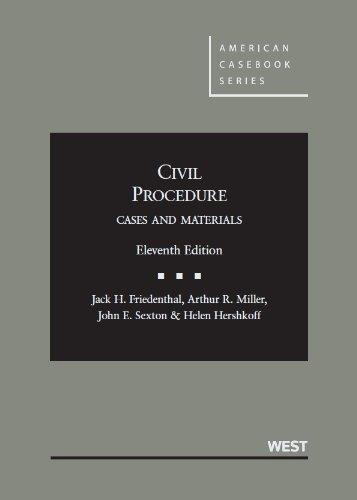4. If state law is unclear or unresolved, may the district court conclude there is simply no...
Question:
4. If state law is unclear or unresolved, may the district court conclude “there is simply no law to apply,” and rule against the party with the burden on that question?
See Clark, Ascertaining the Laws of the Several States: Positivism and Judicial Federalism AfterErie, 145 U. Pa. L. Rev. 1459, 1462 (1997). In this situation, would it be appropriate for a diversity court to decline to exercise jurisdiction? In MEREDITH v. CITY OF WINTER HAVEN, 320 U.S. 228, 234–35, 64 S.Ct. 7, 11, 88 L.Ed. 9, 13 (1943), Chief Justice Stone stated that unless “exceptional circumstances” are present, abstention “merely because the answers to the questions of state law are difficult or uncertain or have not yet been given by the highest court of the state, would thwart the purpose of the jurisdictional act.”
Later, in LOUISIANA POWER & LIGHT CO. v. CITY OF THIBODAUX, 360 U.S. 25, 29, 79 S. Ct. 1070, 1073, 3 L. Ed. 2d 1058, 1062 (1959), the Supreme Court found such an exceptional circumstance in the “special nature of eminent domain,” allowing the district court to stay its proceeding to give the state tribunal an opportunity “to speak definitely”
about a disputed state statute. Is it relevant that a decision to abstain results in the dismissal of the476action, while a decision to stay the proceedings postpones the court’s exercise of diversity jurisdiction?
Step by Step Answer:

Civil Procedure Cases And Materials
ISBN: 9780314280169
11th Edition
Authors: Jack Friedenthal, Arthur Miller, John Sexton, Helen Hershkoff






